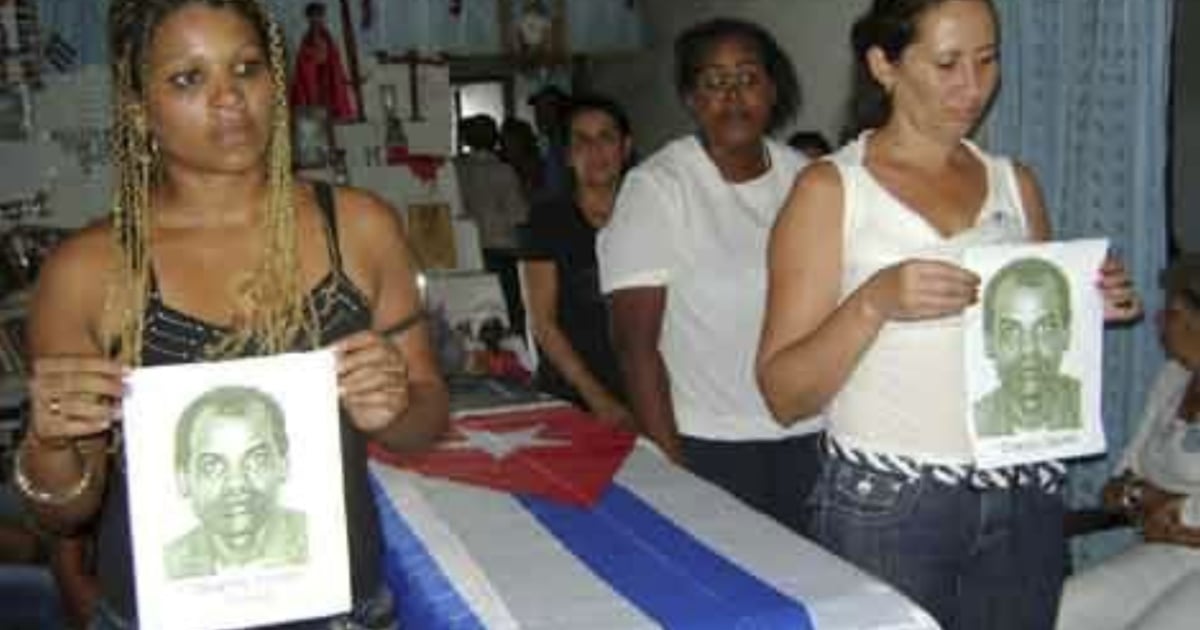On Sunday, a group of activists, independent journalists, and Cuban dissidents paid tribute to political prisoner Orlando Zapata Tamayo, who died fifteen years ago after enduring a lengthy hunger strike in protest of human rights violations and abuses he suffered while incarcerated.
Journalist Yoani Sánchez recounted the day of his passing, describing it as a moment that shook all of Cuba. Sánchez noted, "That day marked one of the most inspiring instances of unity and cohesion among the independent civil society that I can recall." Zapata's death was a profound sacrifice, using his own body as a weapon of protest.
"Fifteen years have passed, and despite the ongoing lack of freedoms that defines daily life on this island, February 23, 2010, undoubtedly marks the beginning of a new chapter," Sánchez emphasized.
A Symbol of Courage and Dignity
José Daniel Ferrer, leader of the Patriotic Union of Cuba (UNPACU), remembered being in an isolation cell at Las Tunas Provincial Prison when he learned of the peaceful dissident and political prisoner Orlando Zapata Tamayo's death. Ferrer protested against what he called a crime, stating, "Many inmates and several guards heard me. Zapata endured beatings, physical and psychological torture, and he never surrendered. Several common prisoners who were near him spoke to me about his extraordinary bravery."
Ferrer described Zapata as a paragon of courage and dignity. "He is always in my thoughts. Over the past 15 years, several political prisoners have perished in the dark prisons of tyranny. They've been left to die on hunger strikes, killed by preventable or curable diseases, and beaten to death. We must never forget our martyrs. February 23 is a day for all of us to honor them."
Journalist Luz Escobar referred to Zapata's death as a sacrifice and a cry for freedom "that the dictatorship has not been able to erase."
A Legacy That Endures
Orlando Zapata Tamayo was imprisoned in 2003 during Cuba's "Black Spring" and sentenced in May 2004 to three years of incarceration. However, due to his political activism, the regime extended his sentence, ultimately amounting to 36 years for charges such as disobedience, disrespect, and protests for human rights.
He died on February 23, 2010, after more than 80 days on a hunger strike protesting his treatment in prison. Following a violent incident involving a kick to the head by a guard at Holguín prison, which resulted in an internal hematoma requiring surgery, Zapata's decision to start and maintain the hunger strike at Kilo 8 Prison in Camagüey became irrevocable.
After over two months without food and amid pressure from dissidents, Cuban civil society activists, and the international community, the Cuban regime transferred him to the hospital at the Combinado del Este Prison in Havana, and eventually to the Hermanos Amejeiras hospital, where he died.
His death sparked such a significant outcry that it led to a campaign under the hashtag OZT: I Accuse the Cuban Government, demanding the release of all Cuban political prisoners.
Frequently Asked Questions About Orlando Zapata Tamayo
Who was Orlando Zapata Tamayo?
Orlando Zapata Tamayo was a Cuban political prisoner known for his activism and protests against human rights violations. He died in 2010 after a prolonged hunger strike.
Why did Orlando Zapata Tamayo go on a hunger strike?
Zapata went on a hunger strike to protest the human rights abuses and harsh treatment he faced while imprisoned by the Cuban regime.
What was the impact of Orlando Zapata Tamayo's death?
His death galvanized the Cuban dissident community and drew international attention to the plight of political prisoners in Cuba, leading to campaigns demanding their release.
